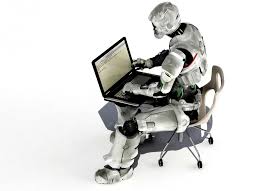
Breaking News
 Private Equity Plan to Steal Your Home.
Private Equity Plan to Steal Your Home.
 Comfy custom-fit saddle is 3D-printed according to data from your butt
Comfy custom-fit saddle is 3D-printed according to data from your butt
 WHO and EU Launch AI System To Monitor Social Media And Online "Misinformation" In Real T
WHO and EU Launch AI System To Monitor Social Media And Online "Misinformation" In Real T
 Why 'Mirror Life' Is Causing Some Genetic Scientists To Freak Out
Why 'Mirror Life' Is Causing Some Genetic Scientists To Freak Out
Top Tech News
 Future of Satellite of Direct to Cellphone
Future of Satellite of Direct to Cellphone
 Amazon goes nuclear with new modular reactor plant
Amazon goes nuclear with new modular reactor plant
 China Is Making 800-Mile EV Batteries. Here's Why America Can't Have Them
China Is Making 800-Mile EV Batteries. Here's Why America Can't Have Them
 China Innovates: Transforming Sand into Paper
China Innovates: Transforming Sand into Paper
 Millions Of America's Teens Are Being Seduced By AI Chatbots
Millions Of America's Teens Are Being Seduced By AI Chatbots
 Transhumanist Scientists Create Embryos From Skin Cells And Sperm
Transhumanist Scientists Create Embryos From Skin Cells And Sperm
 You've Never Seen Tech Like This
You've Never Seen Tech Like This
 Sodium-ion battery breakthrough: CATL's latest innovation allows for 300 mile EVs
Sodium-ion battery breakthrough: CATL's latest innovation allows for 300 mile EVs
 Defending Against Strained Grids, Army To Power US Bases With Micro-Nuke Reactors
Defending Against Strained Grids, Army To Power US Bases With Micro-Nuke Reactors
Linguists now working to replace human journalists with robots that can write the news

Linguists now working to replace human journalists with robots that can write the news

(Natural News) Can robots write our news? Researchers from the Media Management and Transformation Center (MMTC) at Jönköping International Business School mean to answer this question by launching a news site project that is entirely facilitated, managed, and propagated by robots. The project, called DPer News (Digital Personalization of the News), comes with the support of the Knowledge Foundation.
"DPer News is about how we can make news stories that are not just cheap and convenient, but more meaningful and personal. It worries me that just because we can get robots to mine and condense data, that's all we'll do," mentions Professor Daved Barry. This is in response to previous assertions that robots are only useful for service industries. (RELATED: Robots to take over jobs in human service industry, increasing the percentage of unemployed Americans.)
Project Director, Mart Orts says, "The angle of digitalization is very much in demand today, and companies are eager to get help to transform. The general question is how can algorithms replace humans in repetitive professions? Journalism may not seem like a repetitive job, but when it comes to writing about finance and sports, it very well can be."
To date, robots are only used as assistants, helping journalists find and analyze data. The human journalist still has to write the news. DPer News wants to robotize methods, allowing for more interesting news. "Robots can target you and quickly give you the content you want, like the latest sports scores. But what about giving you content that would surprise you, that would help you think in out-of-the-box ways?" asks Professor Barry.
The project would include experts in data mining, creativity and innovation, news company Hallpressen, and computer consultants Infomaker and PDB. DPer News has received a grant from Vinnova.
The future of journalism
Journalism is a very human profession. So much can be gleaned by the written word. Artists thrive in this environment, using this means of communication as a way to express themselves and their personal views. Herein lies the problem: Whether intended or not, personal bias seeps out in articles that should otherwise be clean and objective. [Editor's note: Nearly all mainstream media journalists are already "robots" who do nothing more than restate official propaganda. They don't being any real humanity to their jobs in the first place. If you replace them with robots, nobody could even tell the difference.]
Advancing technologies have shifted the way society operates. Current economic and political climates have intensified the need for more objective data. Artificial intelligence in journalism in the form of "news-bots" can provide the solution.
In as early as 2013, AI-powered journalism was taking root in the minds of scientists. Business strategists saw the potential for a highly intelligent, artificial system that could come up with insightful and well-researched material. Moreover, the system could generate a seamless bridge between humans and machines. Scientists and engineers worked to design a technological base that would perform these functions.

 SpaceX Heat Shield and Starship Mass Production
SpaceX Heat Shield and Starship Mass Production

